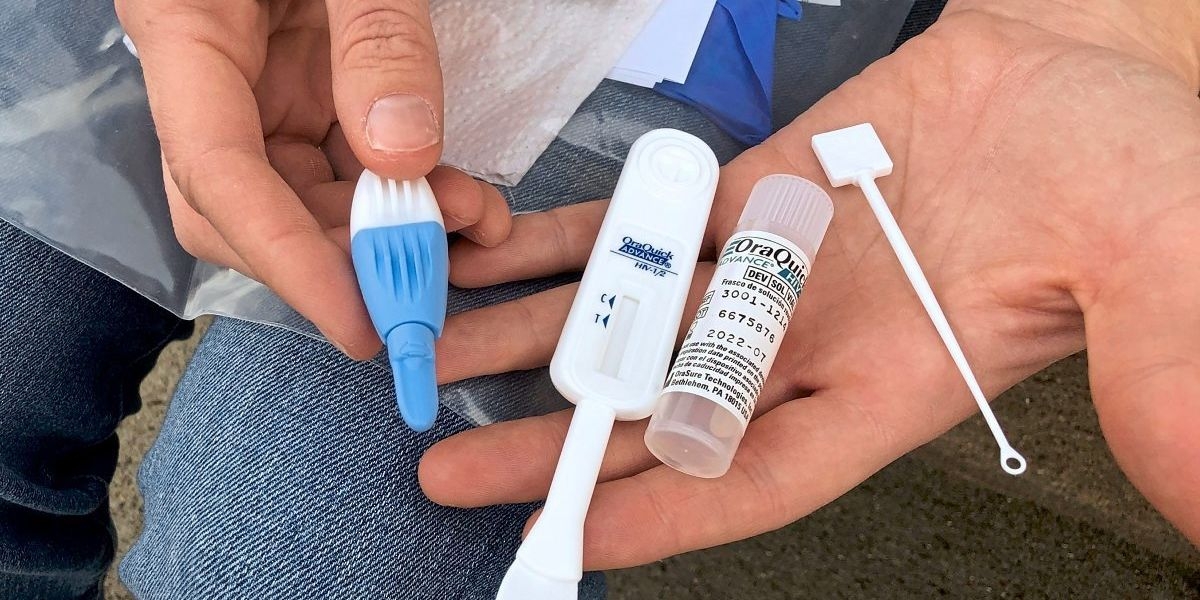
HIV-positive people are discriminated against in court
Translated with www.DeepL.com/Translator (free version) – For original article in German, please scroll down
AIDShilfen: HIV-positive people are discriminated against in court
Criminal law should follow scientific findings. HIV infections should no longer be prosecuted.
Vienna – Austria’s AIDS support organisations are protesting against discrimination in court and demand “the destigmatisation of HIV-positive people in criminal law”. People with HIV who regularly take their therapy and whose viral load is below the detectability limit “do not pose a threat”, it was stressed. “It is high time that criminal law follows the scientific findings,” warned Andrea Brunner, Executive Director of Aidshilfe Wien.
In the past, HIV-positive people have been held criminally responsible despite effective therapy and even though no transmission had taken place. The potential risk of infection was assumed, according to the AIDS support organisations. In 2020, the Higher Regional Court (OLG) of Graz overturned such a first-instance decision on the grounds that successful HIV therapy precluded criminal liability.
Adequate therapy as prevention
Sections 178 and 179 of the Criminal Code (Strafgesetzbuch, StGB) “or the previous case law on the subject”, however, continue to expose people with HIV to discrimination and stigmatisation. Since it has been proven that regular and effective therapy prevents the HIV virus from being passed on, those affected would not be committing a “dangerous act” during sexual intercourse, argues Aidshilfe. Since there is no risk of transmission, the facts of section 178 (“risk of spreading”) are not fulfilled. However, the fear of criminal consequences could contribute to a decrease in the willingness to test among those affected.
The Austrian Aids Support Services demand that an HIV infection should no longer be covered by the punishability of section 178f. As long as this remains the case, “the current state of medical research must be taken into account in the decision by a court. This means that both safe sex and the consistent pursuit of drug therapy must be grounds for exclusion from a trial.”
Broad support from parties
The demands meet with broad support among the parties represented in the National Council. The health spokespersons of the SPÖ, FPÖ do so unreservedly. NEOS (Neues Österreich) health spokesperson Fiona Fiedler is “basically in favour of reducing discrimination and promoting education”, but courts already take the state of science into account – “this demand is therefore obsolete”.
The press office of the ÖVP parliamentary club refers to the Ministry of Justice. There, the demands of the Aids organisations are currently being examined, it says on request. According to the press office of his club, the Green health spokesman Ralph Schallmeiner has already made an appointment with Andrea Brunner, managing director of Aids Hilfe Wien, to discuss possible improvements. (APA, red, 25.10.2021)
HIV-Positive werden vor Gericht diskriminiert
Das Strafrecht solle wissenschaftlichen Erkenntnissen folgen. HIV-Infektionen sollen nicht mehr strafrechtlich verfolgt werden.
Wien – Die Aidshilfen Österreichs protestieren gegen Diskriminierung vor Gericht und fordern “die Entstigmatisierung von HIV-Positiven im Strafrecht”. Menschen mit HIV, die regelmäßig ihre Therapie einnehmen und deren Virenlast unter der Nachweisbarkeitsgrenze liegt, “stellen keine Gefährdung dar”, wurde betont. “Es ist höchst an der Zeit, dass das Strafrecht den wissenschaftlichen Erkenntnissen folgt”, mahnte Andrea Brunner, Geschäftsführerin der Aidshilfe Wien.
In der Vergangenheit seien HIV-positive Menschen trotz wirksamer Therapie und obwohl gar keine Übertragung stattgefunden habe, strafrechtlich zur Verantwortung gezogen worden. Es sei das Gefährdungspotenzial für eine Ansteckung unterstellt worden, so die Aidshilfen. 2020 hob das Oberlandesgericht (OLG) Graz eine solche erstinstanzliche Entscheidung mit der Begründung auf, dass eine erfolgreiche HIV-Therapie eine Strafbarkeit ausschließe.
Adäquate Therapie als Prävention
Die Paragrafen 178 und 179 im Strafgesetzbuch (StGB) “beziehungsweise die bisherige Rechtsprechung dazu” setze Menschen mit HIV aber weiterhin Diskriminierung und Stigmatisierung aus. Da erwiesen ist, dass eine regelmäßige und wirksame Therapie eine Weitergabe des HI-Virus unterbindet, würden Betroffene beim Geschlechtsverkehr jedoch keine “gefährdende Handlung” setzen, argumentiert die Aidshilfe. Da kein Risiko für eine Übertragung besteht, sei der Tatbestand des Paragrafen 178 (“Gefahr der Verbreitung”) nicht erfüllt. Die Angst vor strafrechtlichen Konsequenzen könne jedoch dazu beitragen, dass die Testbereitschaft bei Betroffenen sinkt.
Die Aidshilfen Österreichs fordern, dass eine HIV-Infektion nicht mehr von der Strafbarkeit von Paragraf 178f erfasst sein soll. Solange dies der Fall bleibt, “muss bei der Entscheidung durch ein Gericht der aktuelle Stand der medizinischen Forschung beachtet werden. Das bedeutet, dass sowohl Safer Sex als auch das konsequente Verfolgen einer medikamentösen Therapie als Ausschlussgrund für ein Verfahren gelten müssen.”
Breite Unterstützung von Parteien
Bei den im Nationalrat vertretenen Parteien stoßen die Forderungen großteils auf Unterstützung. Die Gesundheitssprecher von SPÖ, FPÖ tun dies vorbehaltlos. Neos-Gesundheitssprecherin Fiona Fiedler ist “grundsätzlich dafür, Diskriminierung abzubauen und Aufklärung voranzutreiben”, Gerichte würden den Stand der Wissenschaft aber schon jetzt berücksichtigen – “diese Forderung ist daher obsolet.”
Die Pressestelle des ÖVP-Parlamentsklubs verweist auf das Justizministerium. Dort werden die Forderungen der Aidshilfen aktuell geprüft, heißt es auf Nachfrage. Der grüne Gesundheitssprecher Ralph Schallmeiner hat, laut Pressestelle seines Klubs, bereits einen Termin mit Andrea Brunner, Geschäftsführerin der Aids Hilfe Wien, vereinbart, um etwaige Verbesserungen zu diskutieren. (APA, red, 25.10.2021)








